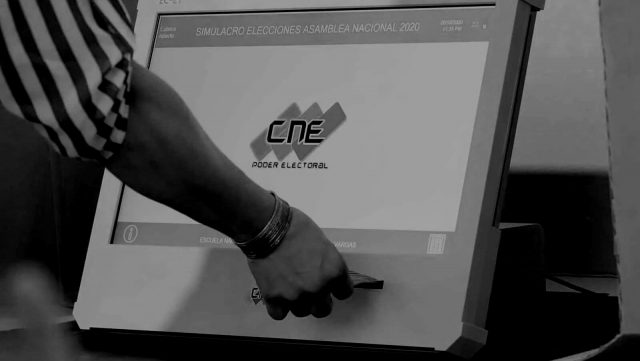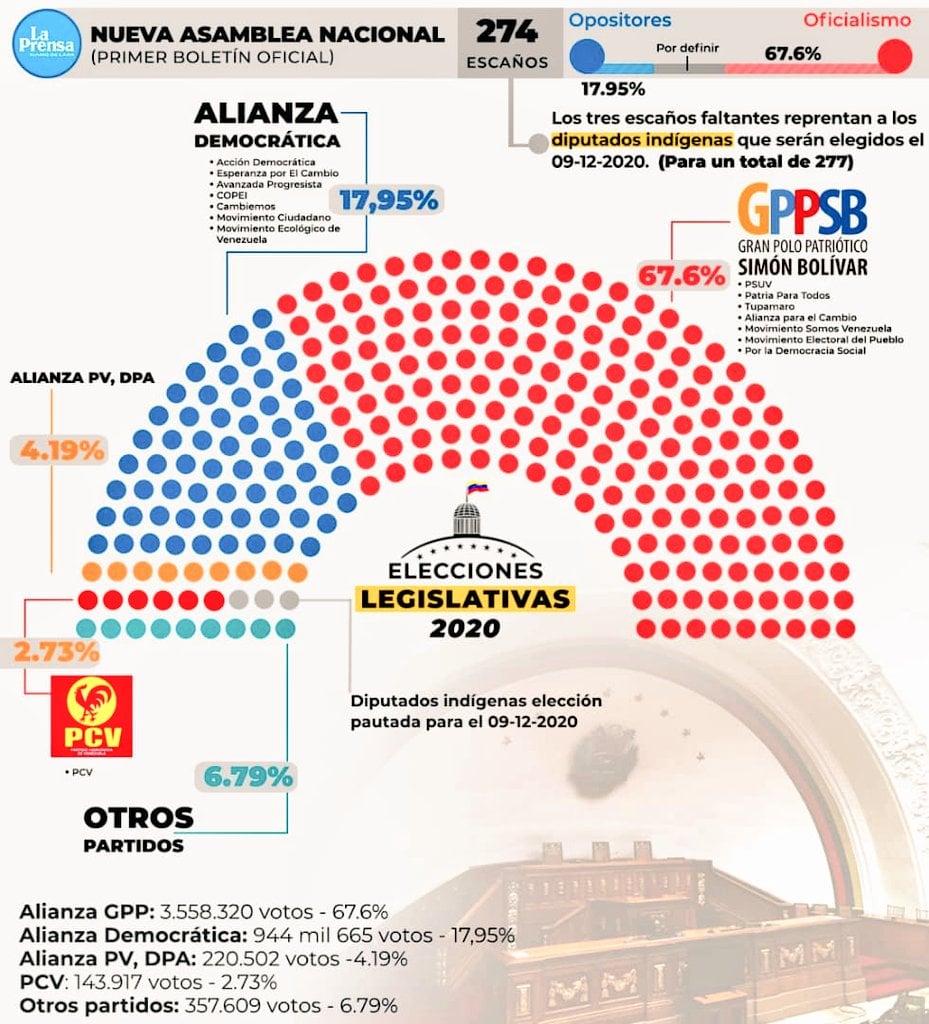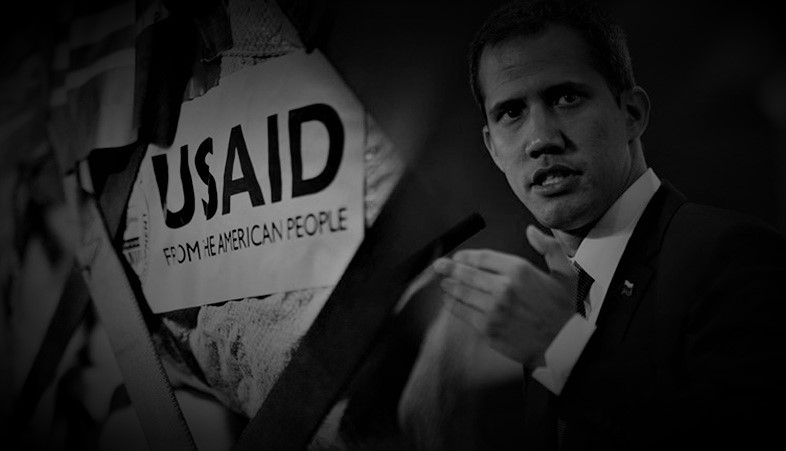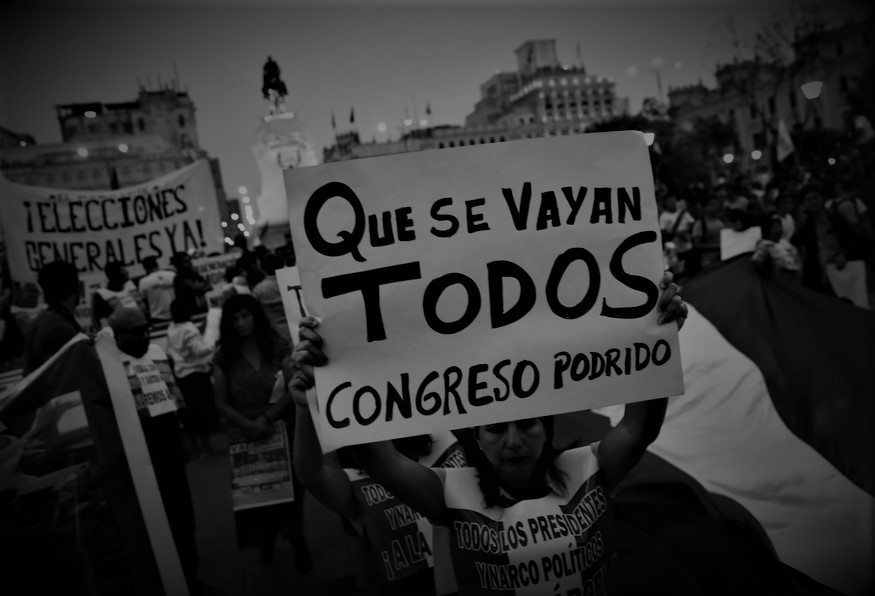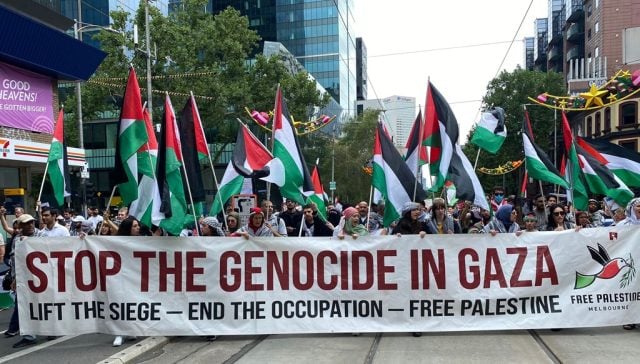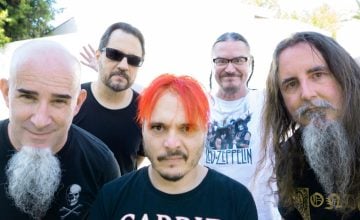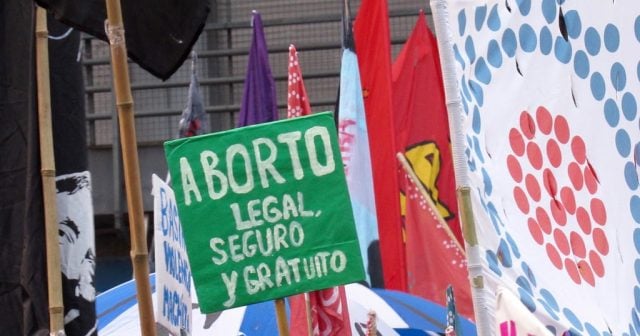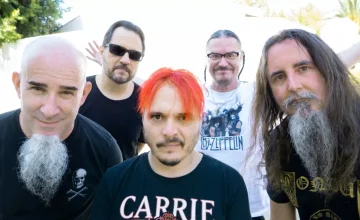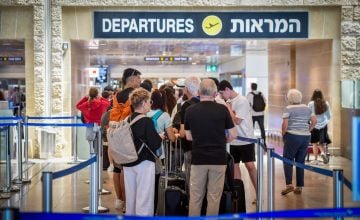Venezuela held legislative elections this Sunday, December 6. The United States, the European Union and some Latin American governments subservient to Washington say they do not recognize them. But the reality is different: the rest of the world does, and – in addition- they are absolutely valid and binding in the South American country.
A strong sector of the Venezuelan right is betting on the coup, foreign intervention and an unconstitutional exit. Before the elections were held, they called for abstention and chanted fraud – as always – without presenting a single proof. Even so, dozens of opposition political parties participated.
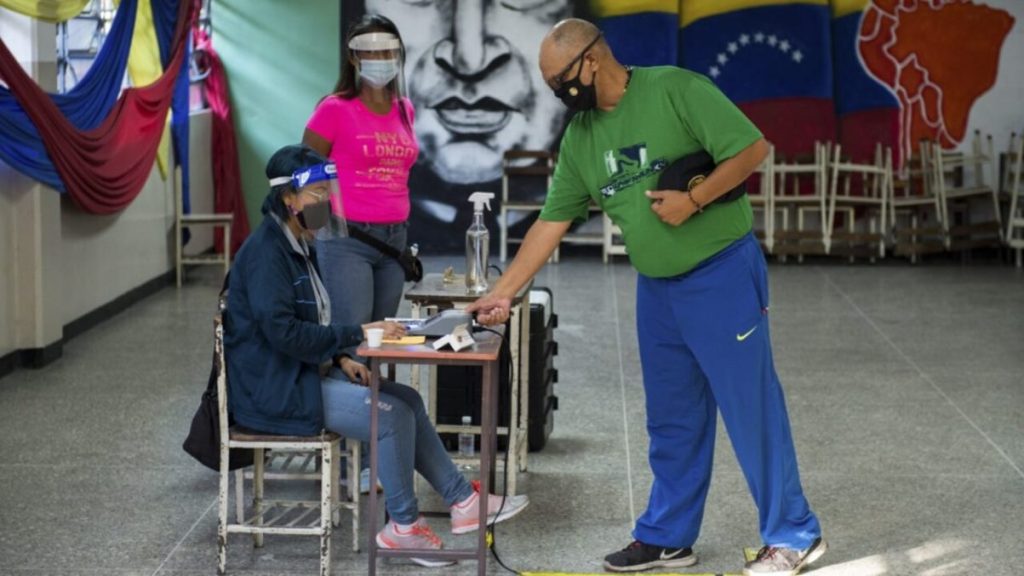
In the end, the results were not surprising: the governing coalition regained control of the National Assembly, legally. Now, they even have more than the two-thirds necessary to pass important laws. This Parliament will take office on January 5, while the one led by Juan Guaidó will be forgotten.
That is why analysts and experts outside the Venezuelan conflict agree that these elections meant the political burial of Guaidó. In addition, they maintain that this is the end of the campaign backed by the United States to overthrow President Nicolás Maduro.
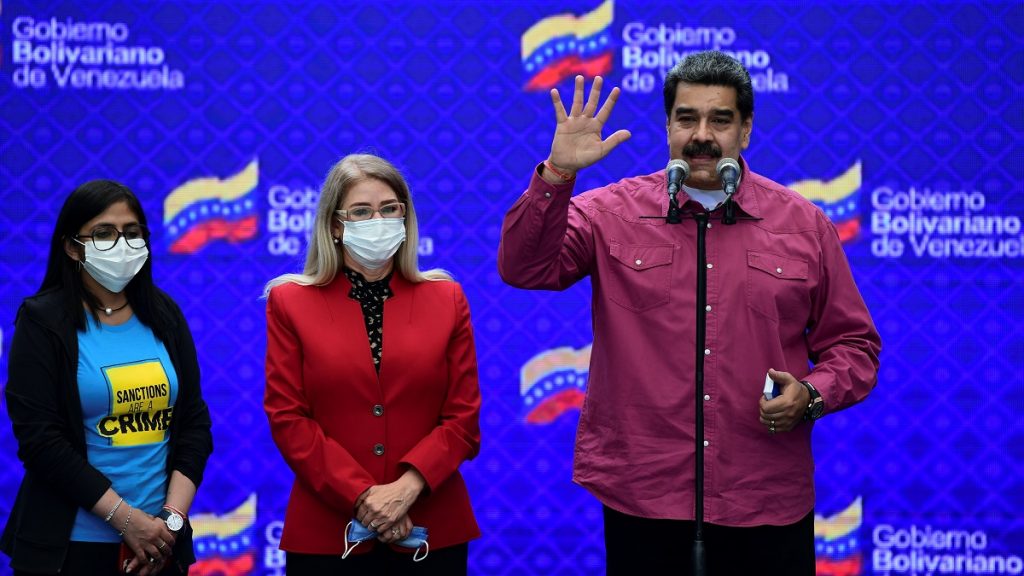
Parliament is ‘Chavista’ again
For Maduro, this process was the opportunity to seize control of the state institution that he lost in the 2015 elections. The right-wing lost five years pushing undemocratic paths from Parliament. At that time, they did not make a single contribution to the Venezuelan people, since they only promoted sanctions and blockades against their country.
This Monday, the National Electoral Council (CNE) confirmed that the coalition of the Gran Polo Patriótico (GPP) obtained 4,294,130 votes. That means 69.27% of valid votes and 165 of 277 deputies. Meanwhile, the participation rate was 30.5%, leaving an abstention of almost 70%.
“We have recovered the National Assembly with the majority vote of the Venezuelan people. It is undoubtedly a great victory for democracy», Maduro said early Monday, after the first official bulletin.
So losing control of parliament, the last official stronghold of the opposition, is a serious blow to Guaidó’s already weak crusade. The ‘adventure’ that began when he proclaimed himself ‘interim president’ of Venezuela, in January 2019, is near the end.
How did he do it? With the backing of the enormous political power of the United States and 50 other governments that do everything the White House tells them to do. They (The US and its accomplices) recognized Guaidó as ‘president’ because he was in charge of Parliament.
But, as of January 5, 2021, he will no longer hold that position, as stipulated by the Venezuelan Constitution. Furthermore, his support base, both at home and abroad, appears to be collapsing.
The ‘officials’ that Guaidó has appointed abroad have been resigning for months. Days ago, his envoy in the United Kingdom resigned and told the Financial Times that the future of his leadership was «uncertain».
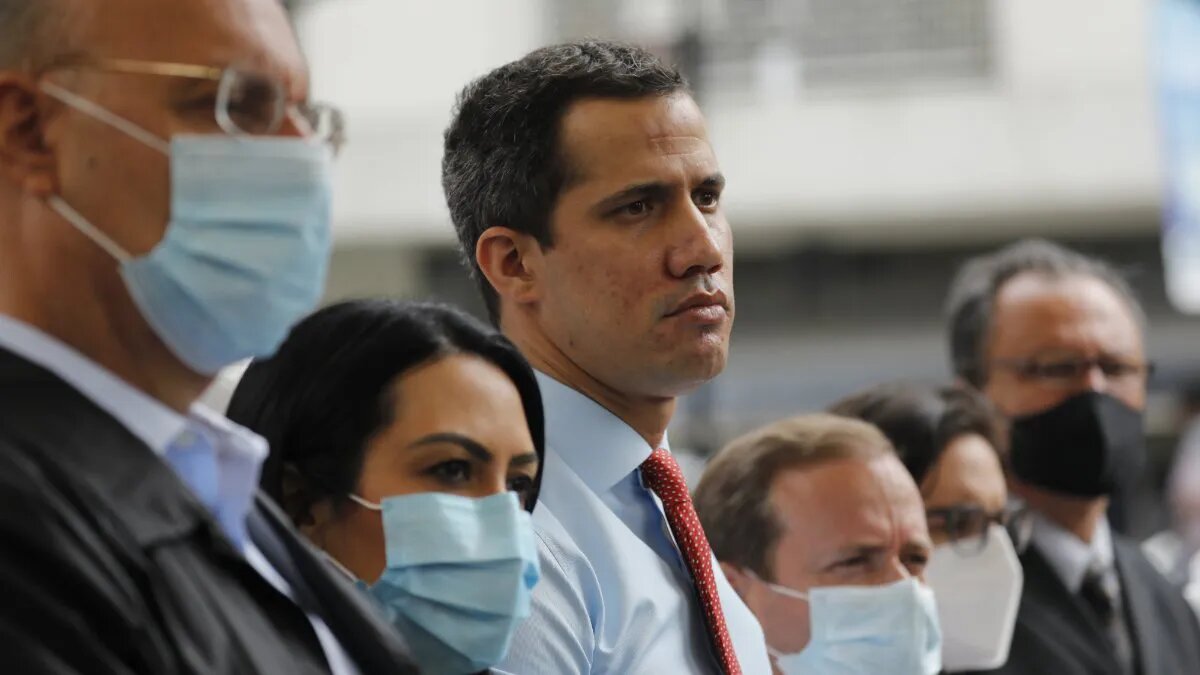
What will happen after January 5
On January 5, the new National Assembly takes office. In this regard, The Guardian interviewed Phil Gunson, an analyst at the International Crisis Group. It is an NGO founded in 1995 by George Soros and dedicated «to the resolution and prevention of international armed conflicts».
Gunson acknowledged that «the coalition around Guaidó is slowly crumbling». However, he doubts that foreign governments will immediately abandon Guaidó after the elections.
“He will go on for a while. But, unless he’s able to reinvent himself in some way, I think Guaido’s plan clearly failed. Now, Maduro has earned the right to take a victory lap», said Gunson.
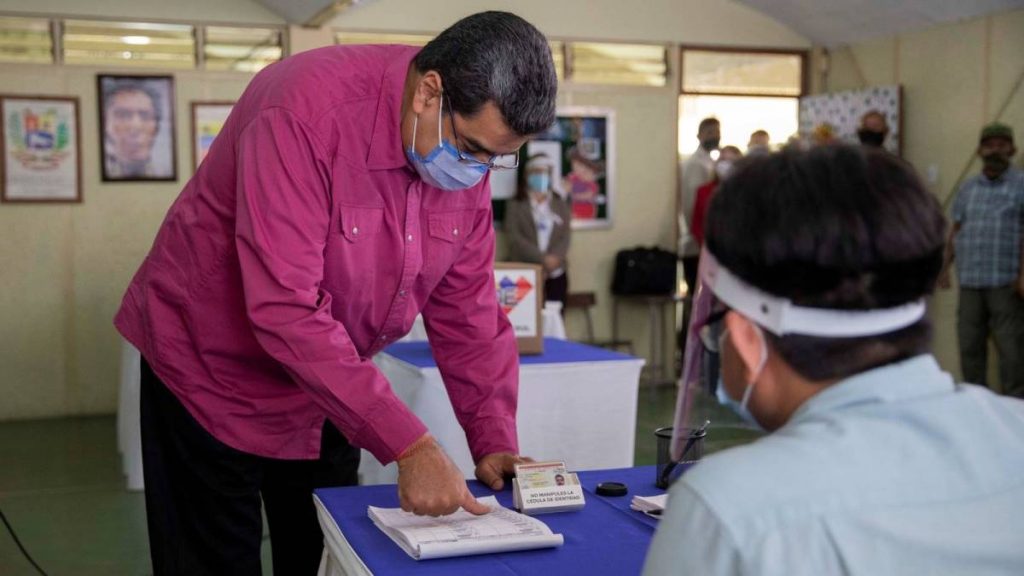
In that sense, he justifies himself by recalling that “almost two years later (since the self-proclamation) there is no progress. In fact, Maduro has more control, certainly politically, than before».
The analyst also acknowledged that the «boycott of the opposition», among other factors, meant that the result was inevitable. “The National Assembly condemned itself to become an ‘official’ Parliament. The government is guaranteed a great majority”.
However, beyond controlling Parliament, Gunson warns that now – for Maduro – the problem that remains is that “the Venezuelan economy is collapsed. The country is – in part – isolated internationally and there is much discontent within its own movement». This is precisely why the president promised «a new era of recovery and genuine progress for all».
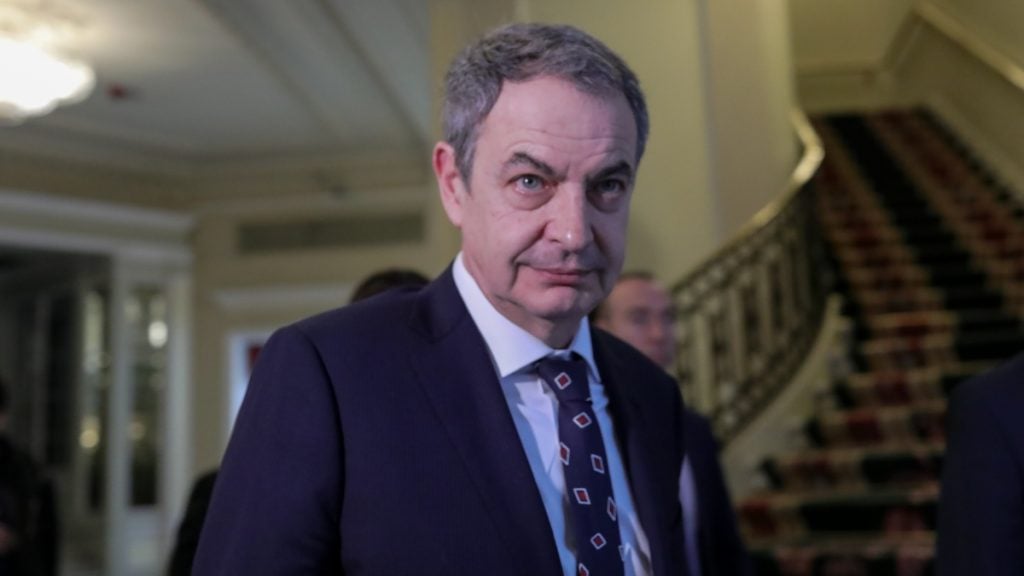
Another international vision of the electoral process
From Venezuela, Alan Macleod outlined another international vision of the conflict for MintPress News. As the GPP coalition celebrates its victory, Guaidó sees the result as a victory for the opposition. It is not understood why he sees it that way, to the point that it is inexplicable, but that is how he sees it.
“The rejection of the regime and its fraud united us, now we must respond in the street. On December 12 we will mobilize as a vast majority who want to choose their future», he announced on his social networks. Guaidó credits himself with the huge abstention, but the reality is that his leadership died, explains Macleod.
The low electoral participation was the product of a mixture of three factors. First, the call for abstention from the right. Second, the fear of the COVID-19 pandemic, beyond the fact that the process contemplated the necessary sanitary measures. And third, the discontent caused by the harsh effects of the United States’ unilateral coercive measures.
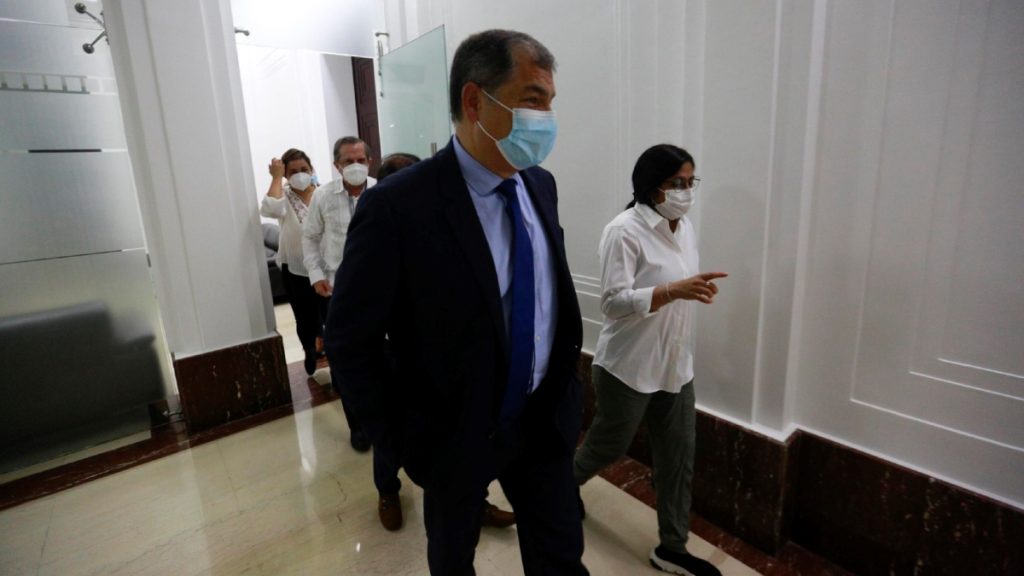
But, the low turnout does not matter, because something undoubted is the credibility of the election. The process involved some 1,500 international observers, including several former heads of State. Among them were Fernando Lugo (Paraguay), Evo Morales (Bolivia), Rafael Correa (Ecuador), José Luís Rodríguez Zapatero (Spain) and Manuel Zelaya (Honduras).
«In Venezuela no one can doubt the electoral system», declared Correa. «The process was transparent and peaceful», added Zelaya. Meanwhile, the final statement of the observer mission is summarized in an idea:
“We saw clean and transparent elections, as well as a great day in times of a pandemic. This election also represents a defeat to the economic sanctions against Venezuela”, imposed by the US regime.
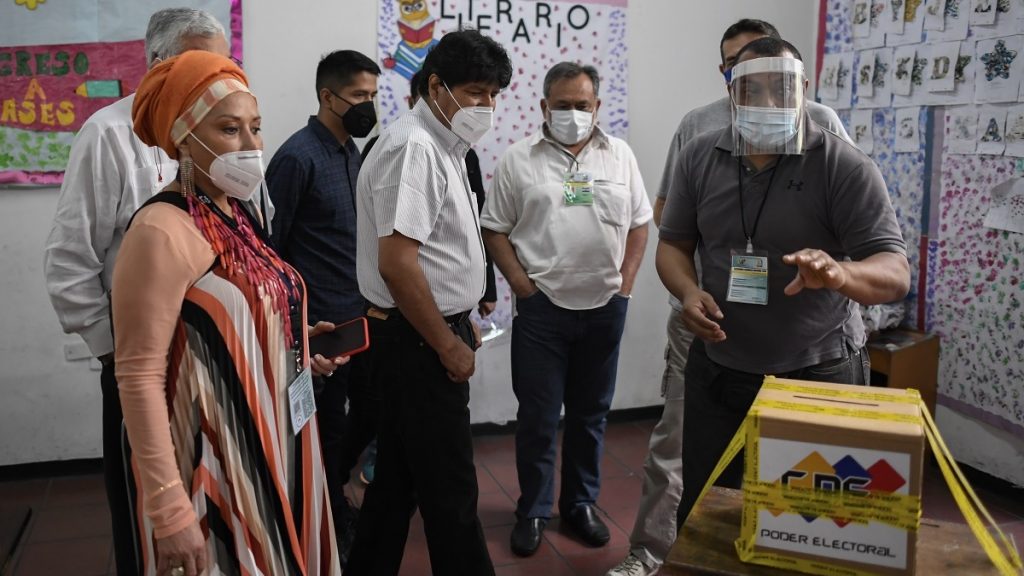
The United States continues to meddle
The US Government had already decided that the process was fraudulent, before it was carried out. “The results announced by the Maduro regime will not reflect the will of the Venezuelan people. What is happening is a fraud and a sham, not an election”, declared Secretary of State Mike Pompeo.
Surprisingly, the statement comes from a government that organized elections on November 3 and 35 days later still has no official results. It is the same government that denounced fraud in an election that they organized themselves. Yes, it is the same government that refuses to recognize the winning candidate.
At the same time, the big media corporations also dance to the same tune. «Maduro consolidates power in Venezuela, dominating an election boycotted by the opposition», headlined The Washington Post. «Maduro grows stronger in Venezuela as the opposition boycotts the elections», wrote the Wall Street Journal. And so it went on and on in the rest of the hegemonic media.
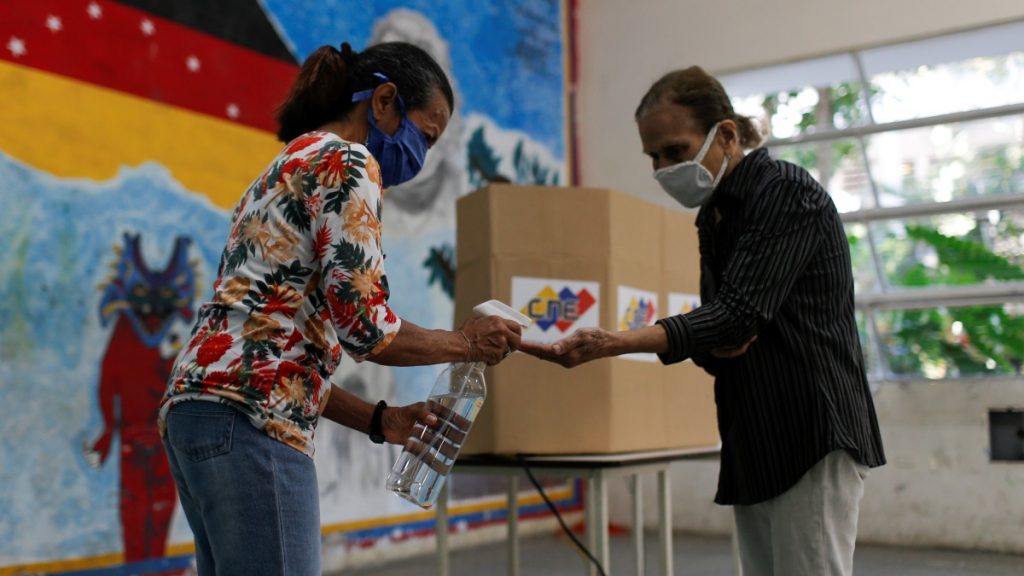
Meanwhile, Human Rights Watch described the election as «a theatrical play designed to give the Maduro government an appearance of legitimacy». Of course, the claim comes from an organization that supported the coup in Bolivia in 2019, to cite just one recent case.
Likewise, the media disseminates unverified data offered by enemies of the Government and the Venezuelan people. Geoff Ramsay of the Washington Office for Latin American Affairs (WOLA) stated that the turnout was just 15%. He did it based on assumptions, nothing corroborable.
Meanwhile, the head of Bloomberg’s office in Venezuela, Patricia Laya, went further. She insists that the turnout was only 10%. Where is their evidence? There simply aren’t. She relies on the so-called «freedom of expression» to lie and not suffer legal consequences.
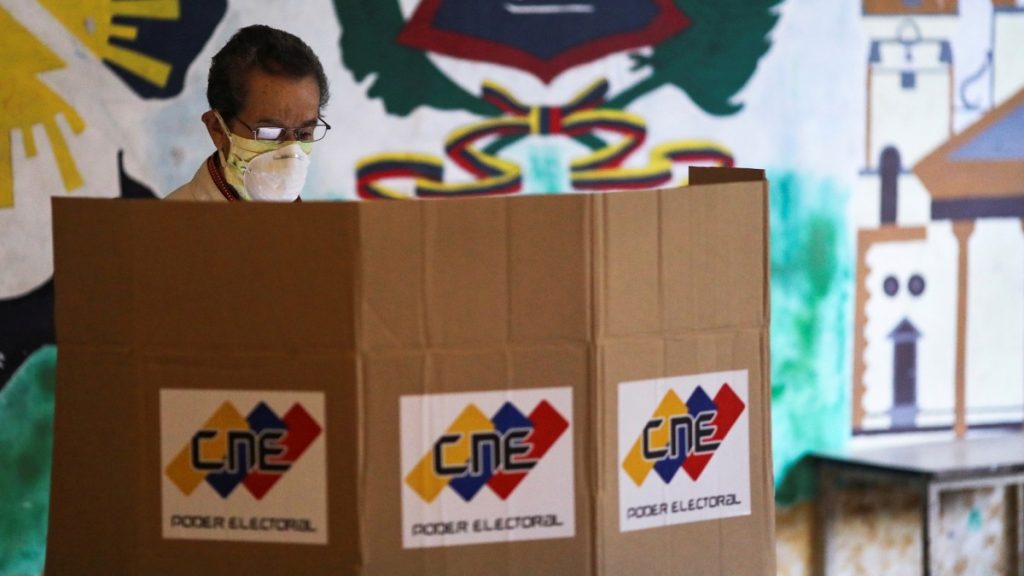
And what about the low electoral turnout?
Concern about low turnout rates did not appear to extend to US ally and NATO member Romania. This Eastern European nation also held parliamentary elections on Sunday and turnout barely exceeded 30%.
But, unlike Venezuela, there were no protests from the White House, nor from the European Union. Much less were there condemnations from the big corporate media.
In the end, all those political actors – starting with Washington – have double standards. In Venezuela, their answer has to do exclusively with who won the elections. In 2015, with the same CNE, the right won a majority in Parliament and everyone abroad recognized and celebrated the process.
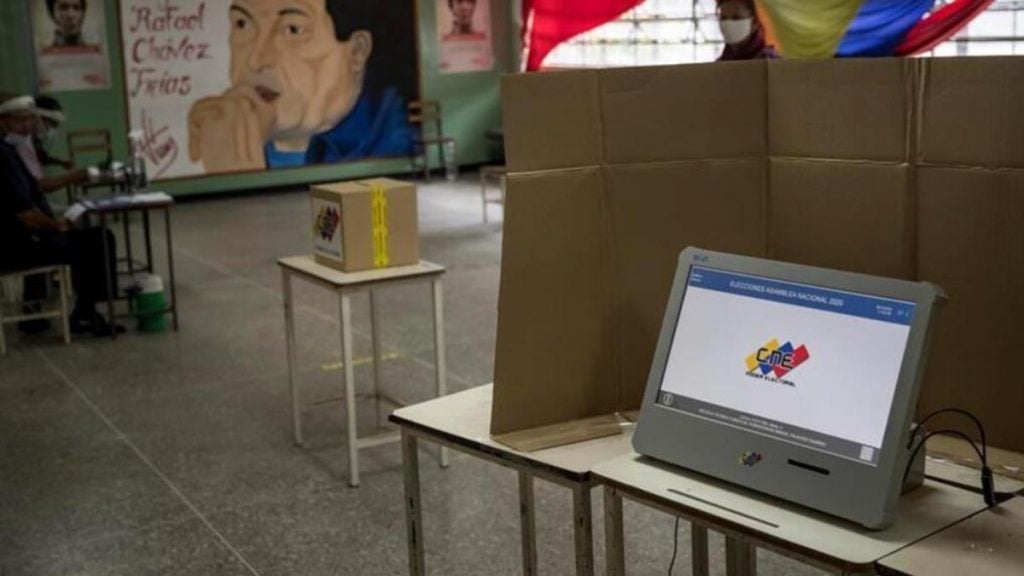
This victory of the left in Venezuela adds to the recent triumph of Luis Arce in Bolivia, of the Movimiento al Socialismo – MAS – (Movement for Socialism). Furthermore, in Guyana, a leftist sector also prevailed at the beginning of the year. And, in 2021 the return of the Citizen Revolution in Ecuador is practically a fact.
Meanwhile, in Brazil there will be presidential elections in 2022 and the defeat of Jair Bolsonaro is almost certain. In the end, everything indicates that the beginning of this new decade will be very positive for the progressive forces in the region.
